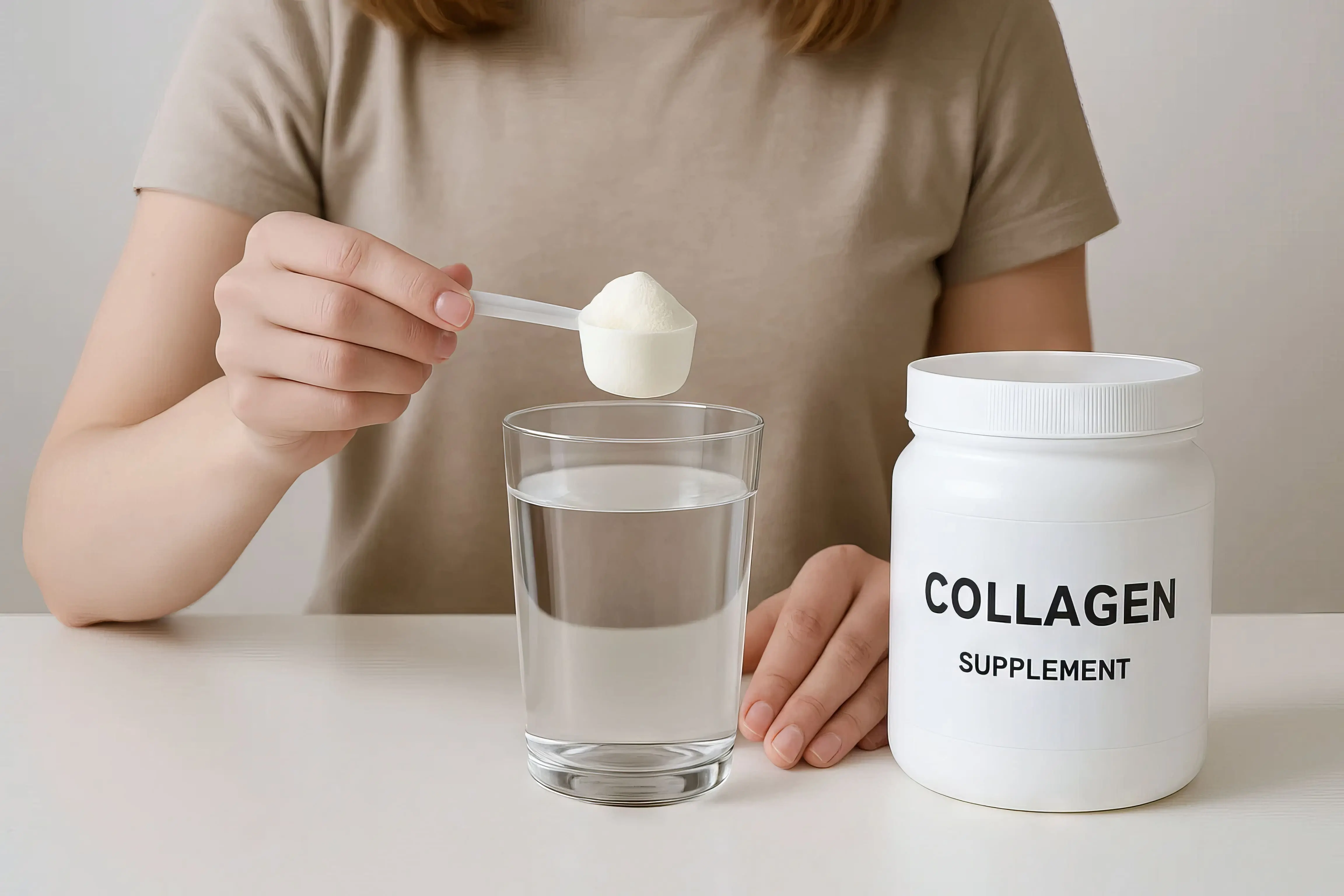Amino Acids vs Proteins: Key Differences Explained
.png)
Understanding these components at a fundamental level helps in designing supplements that are both effective and targeted. Whether it’s for athletic performance or daily nutrition, knowing how they differ improves formulation choices. A knowledgeable dietary supplement manufacturer can leverage this understanding to create high-quality products that meet specific health and fitness needs.
Key Takeaways
- Amino Acids Are the Building Blocks; Proteins Are the Functional Units: Amino acids are small molecules that link together to form proteins, which serve structural, enzymatic, hormonal, and immune functions in the body. Essential amino acids must come from the diet, while proteins provide a full spectrum of health benefits, depending on their structure and source.
- Each Serves Different Supplement Goals: Amino acids are absorbed quickly and are ideal for fast recovery, immediate energy, and targeted muscle support, making them valuable in pre- and intra-workout supplements. Proteins offer a complete, sustained release of nutrients for overall muscle growth, immune support, and long-term nutrition.
- F.A.M.E. Health Labs Helps You Formulate Smart, Goal-Driven Supplements: Whether you're building a performance supplement with amino acids or a complete nutrition shake with protein, F.A.M.E. Health Labs offers custom formulation, top-tier ingredient sourcing, and end-to-end manufacturing to help your brand deliver scientifically backed, high-quality products.
Amino Acids vs Proteins: What Are the Key Differences?
Amino acids are the building blocks that form proteins, while proteins are complex molecules essential for various body functions. Amino acids bind together in chains to create proteins, which play structural, functional, and regulatory roles in the body. By understanding the difference between amino acid and protein, you can appreciate how both contribute to muscle growth, repair, and overall health.
What Exactly Are Amino Acids?
Amino acids are organic compounds that play a pivotal role in biological processes. They are composed of an amino group, a carboxyl group, and a unique side chain that determines their attributes. Acting as the building blocks of proteins, they are vital for tissue growth, energy production, immune function, and nutrient absorption. In total, there are 20 amino acids, with nine classified as essential, meaning they must be obtained through diet as our bodies cannot synthesize them. These essential amino acids support various physiological activities, making them indispensable to health and well-being.
Understanding the Different Types of Essential Amino Acids
Each essential amino acid plays a specific role in maintaining body functions. Their unique benefits make them indispensable when formulating supplements that cater to fitness, cognitive function, immunity, and metabolic health.
Leucine
Leucine is a branched-chain amino acid crucial for muscle protein synthesis and growth. It plays a vital role in regenerating and repairing muscle tissues, which is essential for athletes and bodybuilders. Additionally, leucine helps regulate blood sugar levels and aids in hormone production.
Phenylalanine
Phenylalanine is an essential aromatic amino acid that serves as a precursor for neurotransmitters like dopamine and norepinephrine. It supports cognitive functions, influences mood and concentration, and is utilized by the body to produce proteins and enzymes essential for metabolic processes.
Isoleucine
Isoleucine is another branched-chain amino acid important for muscle metabolism and energy regulation. It plays a key role in hemoglobin production and maintaining stable energy levels. Isoleucine also aids in muscle tissue repair and supports the immune system, making it essential for active individuals.
Tryptophan
Tryptophan is a precursor for serotonin, a neurotransmitter that regulates mood and sleep. It is vital for producing melatonin, which controls sleep-wake cycles. Additionally, tryptophan supports proper nitrogen balance in adults and growth in infants, emphasizing its importance in the diet.
Lysine
Lysine is essential for protein synthesis, calcium absorption, and collagen formation. It supports immune function and helps the body produce hormones and enzymes. Additionally, lysine plays a role in energy production and can help prevent cold sores by inhibiting viral replication.
Methionine
Methionine is vital for initiating the process of protein synthesis and performing antioxidant functions. It plays a crucial role in the production of cysteine and taurine, helps in detoxification, and supports metabolic functions. Additionally, methionine contributes to the maintenance of healthy skin and nails.
Histidine
Histidine is essential for growth and tissue repair, producing histamine, which is crucial in immune responses. It supports the formation of red and white blood cells, aids in metal detoxification, and plays a role in protecting nerve cells, emphasizing its importance in maintaining overall health.
Histidine, a precursor for histamine, plays a key role in immune response and digestive processes. It is essential for growth, tissue repair, and the production of red and white blood cells. Histidine also helps protect nerve cells and aids in maintaining the myelin sheath.
Valine
Valine is a branched-chain amino acid that promotes muscle growth and tissue repair. It aids in energy production and overall endurance during physical activity. Additionally, valine helps maintain the balance of neurotransmitters in the brain, contributing to mental focus and alertness.
Threonine
Threonine is vital for collagen and elastin production, supporting healthy skin and connective tissues. It aids in fat metabolism and immune function by assisting in the production of antibodies. Threonine also plays a crucial role in digestive health by promoting a healthy gut lining.
What Exactly Are Proteins?
Proteins are complex molecules composed of amino acid chains, critical for the structure, function, and regulation of the body's cells, tissues, and organs. They act as enzymes, hormones, and antibodies and are involved in muscle contraction, oxygen transportation, and metabolic processes. Each protein's unique sequence of amino acids determines its specific function, acting as a crucial component in maintaining health and influencing bodily functions. These diverse roles make proteins indispensable for growth, repair, and overall physiological balance.
Explore the Different Types of Protein
The source and combination of proteins matter when planning a diet or developing a supplement. By choosing the right type—complete, incomplete, or complementary—you can ensure balanced nutrition that meets specific dietary needs. Understanding what is the difference between proteins and amino acids can further help in formulating effective dietary strategies that align with health goals.
Complementary
Complementary proteins occur when two or more incomplete protein sources are combined to provide all essential amino acids. This approach is common in vegetarian and vegan diets, where pairing foods, like rice and beans, achieves a complete protein profile essential for balanced nutrition.
Complete
Complete proteins contain all nine essential amino acids our bodies cannot synthesize. These proteins are typically found in animal products like meat, fish, dairy, and eggs, as well as some plant sources like quinoa and soy, offering comprehensive nutrition for muscle repair and overall health.
Incomplete
Incomplete proteins lack one or more essential amino acids necessary for protein synthesis. These are often found in plant-based foods, such as grains, nuts, and seeds. Combining them with other protein sources ensures a balanced intake for maintaining nutritional requirements.
How Do Proteins Work in the Body?
Beyond their structural role, proteins serve as the body’s operational machinery, constantly working behind the scenes. Their ability to adapt to various biological tasks highlights the need for consistent and adequate protein intake.
- Proteins can be used as enzymes to catalyze biochemical reactions, hormones to regulate bodily functions, structural components for cells and tissues, transporters for molecules, and antibodies to fight infections. They play diverse roles in maintaining and supporting life processes.
- Protein deficiency can lead to symptoms like muscle wasting, weakened immunity, fatigue, hair loss, and growth retardation. Other signs include edema from fluid imbalance and anemia due to lack of hemoglobin. Ensuring sufficient protein intake is crucial for overall health and vitality.
The Key Differences Between Amino Acids and Proteins
Recognizing the unique contributions of both amino acids and proteins allows you to tailor nutrition plans more effectively. While proteins offer long-term support, amino acids can deliver quick results—each valuable in different contexts.
Digestibility & Absorption
Amino acids are quickly absorbed and utilized directly by the body, while proteins must be broken down into amino acids first. Thus, amino acids provide faster nutrient availability, whereas proteins offer a slower, more sustained release. Understanding this helps tailor intake for specific health goals.
Difference in Structure & Function
Amino acids are individual molecules that link together to form proteins, which are large, complex structures. While amino acids play roles in immediate energy and neurotransmission, proteins function in building tissue, serving as enzymes, and regulating biological processes.
Role in Muscle Building
Amino acids, especially leucine, directly stimulate muscle protein synthesis, crucial for growth and repair. Proteins, composed of amino acids, provide the fundamental components for muscle development and maintenance, emphasizing their combined importance for optimal muscle health.
What’s Best for You? Amino Acids or Proteins?
Choosing between amino acids and proteins depends on your dietary needs and fitness goals. If you require immediate energy and fast recovery, amino acids can be ideal, particularly for athletes. In contrast, proteins offer a comprehensive nutrient profile beneficial for overall health, muscle growth, and repair. For those engaged in regular intense exercise, a combination of both might provide the best results. It's essential to consider your lifestyle, dietary preferences, and health objectives when deciding which fits best into your nutrition plan.
How F.A.M.E. Health Labs Can Help You Create Your Perfect Supplement
At F.A.M.E. Health Labs, we specialize in developing customized supplements tailored to your unique health and fitness needs. Our team of experts utilizes advanced research and technology to ensure the highest quality and efficacy of each product. We offer comprehensive support from initial custom formulation of supplement to final product delivery, ensuring that each supplement meets rigorous standards. Whether you aim to enhance athletic performance, support immune health, or improve overall well-being, we collaborate closely with you to create supplements that align with your brand and health goals. With F.A.M.E. Health Labs, you are assured of innovative and trustworthy products that cater to your specific needs.
Final Thoughts
In the ongoing debate between amino acids and proteins, it's evident that both play integral roles in supporting overall health, growth, and maintenance of body functions. Whether you're aiming for muscle building, quicker recovery, or holistic well-being, understanding their distinct and overlapped benefits is crucial. Tailoring your approach to include the right balance of amino acids and proteins based on your unique lifestyle and goals can lead to optimal health outcomes. Trustworthy resources like F.A.M.E. Health Labs can provide guidance and high-quality supplements to help you achieve your nutrition aspirations effectively. Remember, your personal needs should dictate the focus between these pivotal dietary components.
FAQs
Can I combine amino acid and protein supplements in a single product?
Yes, combining amino acid and protein supplements in a single product is feasible and beneficial. It provides a comprehensive nutrient profile, supporting muscle repair and recovery while offering immediate and sustained energy benefits.
What types of amino acids should I focus on for my supplement brand?
Focus on essential amino acids, especially branched-chain amino acids like leucine, isoleucine, and valine. These are crucial for muscle growth, repair, and overall health, making them attractive to fitness enthusiasts and health-conscious consumers.
How do I ensure the quality of amino acid and protein supplements in my brand?
Ensure quality by sourcing high-grade raw materials, conducting rigorous testing for purity and potency, and adhering to industry standards. Partnering with reputable manufacturers and employing transparent labeling practices also helps build consumer trust.



.png)

















.webp)
.webp)


.gif)


